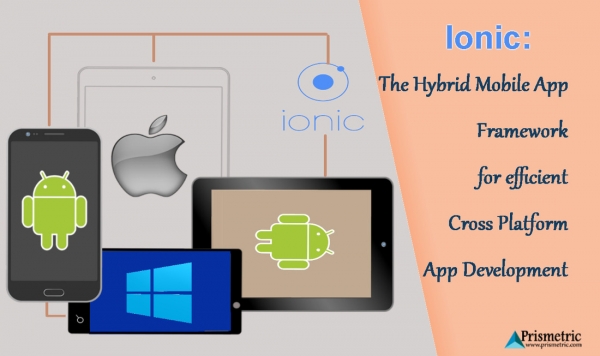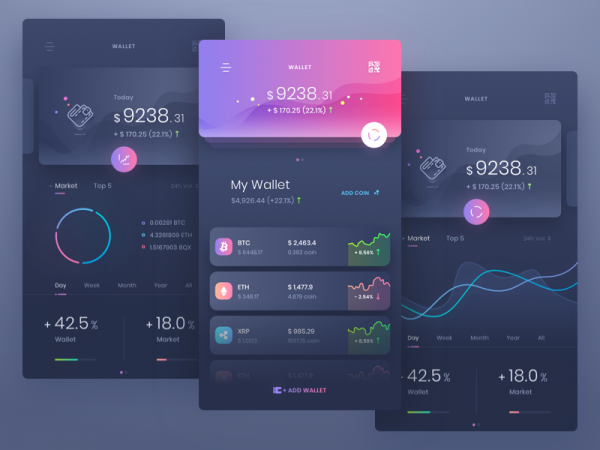Ionic Framework
What is Ionic?
Ionic is the only mobile app stack that enables web developers to build apps for all major app stores and the mobile web with a single code base. And with Ionic’s Platform Continuity, your app looks and feels at home on every device. The ionic community has developed more than 4M ionic apps.
- Free & Open Source — 100% source code on Github
- Fully Cross-Platform — IOS, Android, Windows, Web, Desktop, PWA
- Premier Native Plugins — Camera, Bluetooth, Push Notifications
- First-class Documentation — Clear and Consistent
Ionic (mobile app framework) was created in the year 2013 by Drifty Co and provides tools for developing hybrid mobile apps using web technologies such as HTML5, CSS, and Sass. After taking feedback from clients & customers who tried to create mobile apps, the team of Drifty Company decided to build their own framework that would mainly focus on performance and be developed with the latest web standards. A 1.0 beta was released in March 2014 and a 1.0 final in May 2015.
Where Does Ionic Fit?
Ionic, a complete open-source SDK for HTML5 mobile app development frameworks is targeted at building hybrid mobile apps (a web app, mainly built using HTML5 and JavaScript), which are basically small websites running in a browser shell in an app that has access to the native platform layer. Additionally, hybrid apps have lots of advantages in comparison to pure native apps (an application program that has been developed for use on a particular device or platform), generally in terms of platform support, access to 3rd party code and of course the speed of development. Different from a responsive framework, this comes with very native-styled mobile user interface (UI) elements or layouts that you’d get with a native SDK for Android or iOS but didn’t exist before on the web. Also, Ionic provides some opinionated but very powerful ways to develop mobile apps that eclipse existing HTML5 development frameworks. As it is an HTML5 framework, so it required a native wrapper, such as PhoneGap or Cordova so as to run as a native app.
Features of Ionic Framework
Since it is a completely free and open-source framework, Ionic helps to build hybrid apps using HTML5 and makes use of Angularjs for creating a powerful SDK perfectly-suited to develop highly interactive apps. It provides a great range of tools and services that make using the framework, and once you’ve got node installed, then Ionic is as easy as running.
Key Features
Based on SASS and provides tons of UI components for creating robust and rich apps. Ionic comes transported with a powerful CLI, providing mobile app developers the ability to build and test Ionic apps on any platform. It provides custom elements and methods for interacting with them by using Angular, and one such element, collection repeat, lets users scroll through a list of thousands of items without any performance hits.
Scroll-view is another component that creates a scrollable container with which developers can interact using a native-influenced delegate system. Provides all the functionality found in native mobile development SDKs, so users can create their apps, and customize them for OS or Android and deploy through Cordova.

Benefits of Ionic Framework in Mobile App Development
Advancements in technology development and innovations in technology have made us approachable to various jobs, through some quick clicks. People across the world, spending most of their time on browsing activity with this advancement. Thus, keeping this in mind and the already got huge success of desktop computers or web applications, mobile app developers have put their endeavors in the development of mobile technology in order to the smartphones feature the ability to run the same web apps, and this greets the reaching of Ionic framework development. It has been predicted that HTML5 would gain grand popularity among the people in the coming years, and would be most common to run on mobile devices. According to some researches, “More than 80% of mobile app developers had planned to integrate HTML5 into their apps. There are plenty of great benefits of mobile app development using the Ionic framework, and some of them have been illustrated below
Completely Free and Open Source Framework
You can build your apps on various platforms with this Platform-Independent Framework. Also, it has the ability to spit out the platform-specific optimized CSS to match the native look and feel on assorted mobile operating systems. Ionic gives codes of mobile-optimized HTML, JS and CSS components, and reduces the need for code rewriting. Besides, Ionic integrates into AngularJS hence helping structure that code better as well as more manageable. Developers of apps on leading mobile platforms such as Android, Windows, iOS, becomes possible. It is beneficial for the boost marketing and increased awareness of popularity of the apps. Ionic helps to save time, money or efforts.

Easy and Feasible Cross Mobile App Development
Development of the app is very vital only once as well as it would be compatible with all the mobile devices. Also, it needs the very limited use of time, resources and efforts, and helps in giving an integrated look and feel. Apart from, Ionic helps in developing apps quickly with efficiency and deploys standard tools with a single code base.

A Beautiful Default UI
This framework comes with a lot of default CSS components and JavaScript components that cover most of the elementary things you would want to create into a mobile application. Some of the things include the Sliding Menu, Form Inputs, Buttons, Lists, Navigation, Tabs, Sliding Boxes and Popups and prompts. The default styles are very simple, sleek and you can customize them by adding one of the pre-defined CSS classes to the element.
Built On Angular
If you’ve used Ionic, then you would likely know that it is built on top of the AngularJS framework. Fundamentally, Ionic broadens Angular with a lot of stuff to make creating mobile applications with Angular super easy. Today, AngularJS is the most favorite JavaScript framework in use and is backed by Google. Moreover, Ionic framework shares compatibility with AngularJS, and so the benefits of AngularJS framework development can be put to use as well.
Using Native Plugins in the Browser
Ionic Native comes with over 130 mobile Native SDK plugins that make it possible to build powerful Ionic apps that take full advantage of Native mobile SDKs on iOS, Android, and beyond. Historically, it was difficult to test native functionality in the browser, requiring Ionic developers to test on a physical device or emulator, a rather slow process. Ionic Native 3.0 now allows developers to mock and use native plugins in the browser through a simple override mechanic, making it easy to provide testing data from a sensor, or to access a native-only API such as Health Kit. This means that a large majority of an Ionic app can now be built entirely in the browser without deploying to device or emulator. A level of development speed unheard of in mobile.
Conclusion
Ionic Framework is the dominant HTML5 mobile development framework at present. We can’t imagine how things will play out in this fast-changing app development world, but Ionic is well placed to go on its domination and become more and better in the future.
At SPGON our incredibly skilled team of ionic developers are specialized with creating new hybrid mobile applications with clean and neat interface. We are offering a flexible and cost-effective approach to design and develop cutting-edge hybrid applications for different platforms like Android, IOS at a time. For effective hybrid mobile applications Please Contact Us or drop us a line at info@spgon.com
Author :Chandra Haasan Bhattiprolu- Web Developer
Source :https://bdaily.co.uk